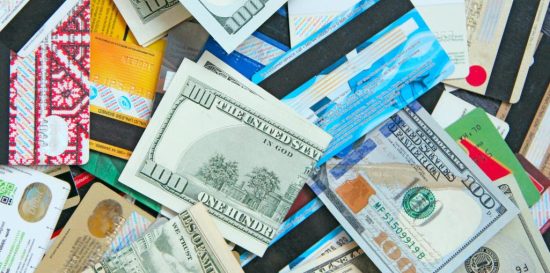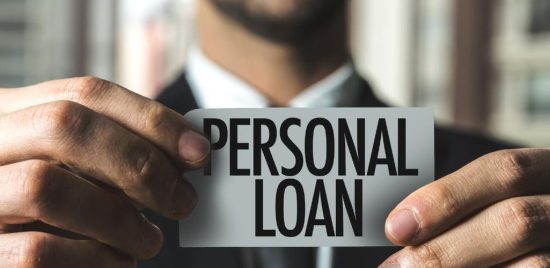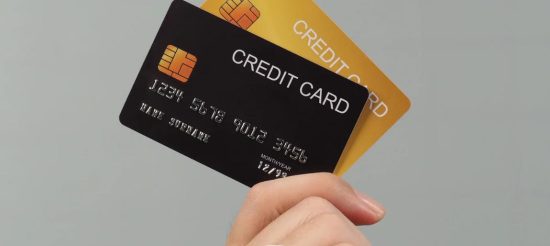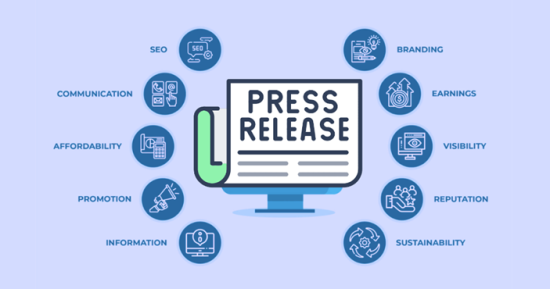
Faced with a financial decision, have you ever wondered, “Is a credit card better than a personal loan?” The truth is, both personal loans and credit cards offer unique advantages and disadvantages, making the choice depend on your specific needs and circumstances. Understanding the key differences between these financing options can help you determine which one is the better fit for your financial goals.
Key Differences: Personal Loan vs Credit Card

When it comes to financing options, personal loans and credit cards each have distinct features that cater to different financial needs. Understanding the key distinctions between these two popular borrowing tools can help you make an informed decision on which one best suits your specific situation. When it comes to managing your finances, there are several options available to help you meet your financial goals. Two popular choices are credit cards and personal loans. Both of these tools can provide you with the funds you need, but it’s important to understand the key differences between the two.
One advantage of a credit card over a personal loan is the flexibility it offers. With a credit card, you have a revolving line of credit that you can use as needed. This means that you can make purchases, pay them off, and use the credit again. Personal loans, on the other hand, offer a fixed amount of money that is typically repaid in installments over a set period of time.
Personal Loan
Personal loans are installment loans, meaning you receive a lump sum of money and repay it in fixed monthly payments over a set term, usually 2-7 years. They often have lower interest rates than credit cards, especially for borrowers with good credit. Personal loans can be used for a variety of purposes like debt consolidation, home improvements, or large purchases. One of the most common questions that arise when considering a personal loan is whether it is a good or bad idea.
The answer, of course, depends on your individual financial situation. Personal loans can be a great option for borrowers with good credit who are looking for lower interest rates compared to credit cards. These loans offer flexibility and can be used for a variety of purposes such as debt consolidation, home improvements, or making large purchases.
When searching for the best bank to apply for a personal loan, it’s important to consider interest rates, loan eligibility criteria, and repayment terms. Different banks have different requirements, so it’s essential to shop around and compare options. Researching online or speaking with loan professionals can help you find the bank that offers the best terms and conditions for your needs.
Credit Card
Credit cards are a form of revolving credit, allowing you to borrow money up to a set limit and repay it over time. You only pay interest on the balance you carry from month to month. Credit cards offer more flexibility for everyday spending but typically have higher interest rates than personal loans. They can also provide benefits like rewards programs and 0% introductory APR periods. When it comes to managing our finances, one question that frequently arises is whether a credit card is a better option than a personal loan. Considering the factors involved, it really depends on an individual’s financial situation and spending habits.
Credit cards offer more flexibility for everyday spending, making them an enticing choice for those who prefer convenience. Additionally, they often come with rewards programs that can be a great way to earn cashback or other perks. However, it’s important to note that credit cards typically have higher interest rates than personal loans, so carrying a balance can quickly accumulate debt.
When to Use a Personal Loan
Personal loans can be a valuable financial tool for consumers, offering several distinct advantages compared to other borrowing options like credit cards. Understanding the key benefits and drawbacks can help determine when a personal loan may be the better choice. One of the main advantages of a personal loan is that it can be used for a variety of purposes.
Whether you need to consolidate high-interest debt, pay for unexpected medical expenses, or make a large purchase, a personal loan can provide the funds you need. Unlike credit cards, which often have higher interest rates and fees, personal loans usually offer lower interest rates and fixed repayment terms. This can make it easier to budget for monthly payments and save money on interest charges in the long run.
When considering a personal loan, many people wonder, “Which bank is best for a personal loan?” The answer to this question will depend on your individual needs and financial situation. It’s important to shop around and compare interest rates, fees, and terms from different banks and lenders. Online lenders may also be a viable option, as they often have lower overhead costs and can offer competitive rates. Additionally, consider reading reviews and checking the bank’s customer service reputation to ensure a positive borrowing experience.
Personal Loan Advantages

When it comes to managing your finances, it’s essential to make informed decisions. One such decision that often arises is whether to opt for a personal loan or use a credit card for a financial need. Many people wonder, “Is a personal loan good or bad?” The truth is, personal loans come with several advantages that make them a viable option for many individuals.
One major advantage of a personal loan is lower interest rates compared to credit cards. While credit cards tend to have high-interest rates, personal loans typically offer lower rates, making them a cost-effective option for borrowing money. Additionally, personal loans often have fixed interest rates, meaning your monthly payments remain stable, making it easier to manage your repayments.
Personal Loan Disadvantages
The downside of personal loans is that they lack the flexibility of credit cards. Personal loans are intended for infrequent, large expenses, so they may not work as well for smaller, more frequent purchases. Personal loans also do not offer rewards programs or other credit card benefits. Origination fees and other costs can add to the overall expense as well. When it comes to financial decisions, it’s important to carefully weigh the advantages and disadvantages.
Personal loans, a popular choice for many, come with their fair share of disadvantages that should not be overlooked. The first question that often comes to mind is whether a personal loan is good or bad altogether. While personal loans can provide immediate financial relief, they have some drawbacks worth considering.
One disadvantage of personal loans is the potential for higher interest rates compared to other types of loans, such as secured loans. This means borrowers may end up paying more over time in interest charges. Additionally, personal loans are typically unsecured, meaning they don’t require collateral. While this may seem convenient, it also means lenders have less security, leading to stricter eligibility criteria or higher interest rates.
When to Use a Credit Card
Credit cards excel at everyday spending and smaller purchases that you can pay off quickly. The convenience and ability to earn rewards on regular expenses make credit cards a versatile financial tool. Additionally, credit cards provide a financial safety net for unexpected costs, and 0% introductory APR periods can be leveraged to save on interest. One common dilemma people face is whether they should use a loan or a credit card for certain expenses.
While loans may offer lower interest rates, credit cards come with their own advantages. Credit cards allow for greater convenience and flexibility, especially for smaller purchases. They also provide additional benefits like reward points or cashback on purchases. Furthermore, credit cards can serve as a financial safety net for unexpected costs, providing a buffer until you can pay off the balance.
Credit Card Advantages
The main advantages of credit cards are the convenience and flexibility they provide for everyday spending. Credit cards allow you to make purchases without having the full amount upfront, and many offer rewards programs that can provide cash back, points, or miles on your spending. Credit cards can also serve as a financial safety net for unexpected expenses, and 0% introductory APR periods can be leveraged to save on interest costs as long as you pay off the balance before the promotional rate expires.
Credit Card Disadvantages
The primary drawback of credit cards is the potential to incur high interest costs if you carry a balance from month to month. Credit cards typically have much higher annual percentage rates (APRs) than personal loans, making them an expensive way to finance large, long-term expenses. It’s also easy to overspend and accumulate debt on credit cards due to their convenience. Annual fees and other charges can add to the overall costs as well.
One of the major disadvantages of credit cards is the temptation to use them like a loan. While it may be convenient to make purchases on credit and delay payment, it can lead to a dangerous cycle of debt. Unlike a personal loan, which has a fixed repayment plan, credit cards often come with high interest rates and minimum monthly payments that can stretch out the repayment period for years. This can make it difficult to pay off the balance and can result in paying much more than the original purchase price in interest over time.
Consolidating Debt? Personal Loan vs Credit Card
When consolidating existing high-interest debt, both personal loans and credit cards can be options to consider. Personal loans typically offer lower interest rates, making them a good choice if you have good credit. However, credit cards with 0% introductory APR periods can also provide savings on interest, as long as you pay off the balance before the promotional rate expires. The best option depends on your credit profile and ability to qualify for favorable terms.
Using a personal loan calculator can help compare the potential costs of each approach. Factors like origination fees and balance transfer fees should also be considered when evaluating the tradeoffs.
Loan Alternatives
When considering financing options, there are several alternatives to personal loans and credit cards that may be worth exploring, depending on your specific needs and financial situation. These include home equity loans, cash-out refinances, and home equity lines of credit (HELOCs).When it comes to borrowing money, most people think of traditional bank loans or credit cards as their only options. However, there are alternative methods of financing that may be more suitable for your situation. Many people wonder, “Are bank loans cheaper than credit cards?” The answer depends on several factors.
While it is true that bank loans often come with lower interest rates than credit cards, they may also require collateral or have stricter eligibility criteria. On the other hand, credit cards offer more flexibility and convenience, but their interest rates can be significantly higher. So, it’s important to compare the terms and conditions of each option before making a decision.
Home Equity Loan

A home equity loan allows you to borrow against the equity in your personal residence, often at lower interest rates than personal loans or credit cards. This can be a beneficial option if you have substantial home equity and need to finance a large expense, such as a home renovation or debt consolidation. However, it’s essential to remember that a home equity loan uses your home as collateral, so there is a risk of losing your property if you are unable to make the payments.One of the most common ways of accessing funds is through credit cards or personal loans.
However, when faced with the decision of whether to use credit or get a loan, it’s important to consider the long-term implications. While credit cards may offer convenience and flexibility, they often come with high interest rates that can quickly accumulate debt. On the other hand, a personal loan can provide a lump sum amount with a fixed interest rate and repayment period.
Another factor to consider is whether a personal loan can build credit. The answer is yes. Timely payments on a personal loan can positively impact your credit score and demonstrate responsible financial behavior to lenders. By consistently making loan payments, you are establishing a credit history that reflects your ability to manage debt.
Cash-out Refinance
A cash-out refinance involves replacing your current mortgage with a new, larger loan and using the additional funds for other purposes, such as debt consolidation or home improvements. This approach can provide access to low-interest financing, but the process typically takes more time and effort than securing a personal loan or credit card. Homeowners with significant equity in their property may find a cash-out refinance to be a viable option.
A cash-out refinance is a financial tool that allows homeowners to access the equity they have built up in their property. This process involves refinancing their mortgage for a higher amount than the current balance and receiving the difference in cash. While this can be an attractive option for those in need of funds, it’s important to consider the potential impact on your credit.
One of the most common concerns when it comes to taking out a loan is how it will affect your credit score. In the case of a cash-out refinance, it can have both positive and negative consequences. On the one hand, if you make your mortgage payments on time, it can help build a positive credit history and potentially improve your credit score over time. On the other hand, applying for a cash-out refinance will involve a hard inquiry on your credit, which can temporarily lower your score.
Home Equity Line of Credit (HELOC)
A HELOC is a revolving line of credit secured by the equity in your home. It functions similarly to a credit card, allowing you to access funds as needed, but often with lower interest rates than traditional credit cards. HELOCs typically have a draw period, where you can borrow against the line of credit, followed by a repayment period, so the monthly costs can vary. This can be a flexible financing solution for homeowners with sufficient equity in their property.
When it comes to accessing funds for major expenses or financial emergencies, homeowners often find themselves faced with the decision of whether to use a loan or a credit card. One option that is worth considering is a Home Equity Line of Credit (HELOC).
Personal Loan and Credit Card Approvals
When seeking financing, lenders evaluate several key factors to determine the approval of a personal loan or credit card application. Among the most important considerations is the applicant’s credit score. Generally, individuals with higher credit scores, typically 690 or above, will qualify for the most favorable rates and terms.
Beyond credit score, lenders also examine an applicant’s income, debt-to-income ratio, and overall credit history. These metrics provide insight into the borrower’s ability to manage and repay the requested credit responsibly.
It’s important to note that applying for either a personal loan or credit card may result in a small, temporary dip in the applicant’s credit score due to the credit check performed by the lender. However, by using the credit responsibly and making timely payments, borrowers can rebuild and improve their credit profile over time.
Personal Loans
The main advantages of personal loans are the lower interest rates compared to credit cards, the predictability of fixed monthly payments, and the ability to finance large, one-time expenses. Personal loans can also be a good option for debt consolidation, allowing you to pay off multiple high-interest debts with a single, lower-interest loan. Many lenders offer fast funding, sometimes even same-day, for qualified borrowers.
Pros
The lower interest rates on personal loans compared to credit cards make them a more cost-effective option for financing large, one-time purchases or consolidating debt. The fixed monthly payments provide predictability and make budgeting easier. Personal loans can also be a good choice for those with good credit who need to access a lump sum of cash quickly.
Cons
The lack of flexibility is a potential downside of personal loans. Since they are intended for infrequent, major expenses, personal loans may not be the best fit for smaller, more frequent purchases. Additionally, personal loans do not offer the rewards programs or other benefits that credit cards can provide. Origination fees and other costs associated with personal loans can also add to the overall expense.
Credit Cards

The main advantages of credit cards are the convenience and flexibility they provide for everyday spending. Credit cards allow you to make purchases without having the full amount upfront, and many offer rewards programs that can provide cash back, points, or miles on your spending. Credit cards can also serve as a financial safety net for unexpected expenses, and 0% introductory APR periods can be leveraged to save on interest.
Pros
One of the primary benefits of credit cards is the convenience they offer for everyday spending. With a credit card, you can make purchases without needing to have the full amount of the transaction available in your bank account. This can be particularly useful for unexpected expenses or when making larger purchases that you may want to pay off over time. Many credit cards also offer rewards programs, allowing you to earn cash back, points, or miles on your regular spending. These rewards can provide added value and help offset the cost of using a credit card.
Credit cards can also serve as a financial safety net in the event of unexpected expenses. The available credit on your card can provide a buffer to help cover emergency costs without draining your savings. Additionally, some credit cards offer 0% introductory APR periods, which can be leveraged to save on interest when financing larger purchases or consolidating existing debt.
Cons
The primary downside of credit cards is the potential to incur high interest costs if you carry a balance from month to month. Credit cards typically have much higher annual percentage rates (APRs) than personal loans, making them an expensive way to finance large, long-term expenses. It’s also easy to overspend and accumulate debt on credit cards due to their convenience and the temptation to make impulse purchases.
Another potential drawback of credit cards is the annual fees and other charges that can add to the overall cost of using the card. Some credit cards may have annual fees, balance transfer fees, or other fees that can eat into the value of the card’s benefits. Carefully reviewing the terms and conditions of a credit card before applying is crucial to understanding the potential costs and ensuring the card aligns with your financial goals.
Other Types of Credit Lending
In addition to personal loans and credit cards, there are other credit lending options that may be worth considering, depending on your unique financial needs and situation. These include business loans, payday loans, and various types of lines of credit such as home equity loans, cash-out refinances, and home equity lines of credit (HELOCs).
Business loans are designed specifically for entrepreneurs and small business owners who need funding for operational expenses, equipment purchases, or expansion. These loans often have different eligibility requirements and terms compared to personal loans.
Payday loans are short-term, high-interest loans that are typically due on the borrower’s next payday. While they can provide quick access to cash, payday loans should generally be avoided due to their exorbitant fees and potential to trap borrowers in a cycle of debt.
Home equity loans and HELOCs allow homeowners to leverage the equity in their property to secure financing. These options typically offer lower interest rates than personal loans or credit cards, but they also come with the risk of potentially losing your home if you’re unable to make the payments.
Cash-out refinancing involves replacing your existing mortgage with a new, larger loan and using the extra funds for other purposes, such as debt consolidation or home improvements. This can provide access to low-interest financing, but the process generally takes more time and effort compared to a personal loan or credit card application.
Each of these credit lending options has its own unique features, requirements, and tradeoffs that should be carefully evaluated to determine if they align with your financial goals and circumstances. Consulting with a financial advisor can help you make an informed decision about the best credit solution for your needs.
Personal loan vs Credit card
The choice between a personal loan and a credit card ultimately depends on your specific financial goals and circumstances. Personal loans are generally better suited for large, one-time expenses or debt consolidation, thanks to their lower interest rates and fixed monthly payments. Credit cards, on the other hand, excel for everyday spending, earning rewards, and providing a financial safety net, but they can be more expensive if you carry a balance.
Evaluating factors like the size of the expense, your credit profile, and your repayment ability will help determine the better option. Using online calculators to compare the potential costs of each can also provide valuable insights.
| Personal Loan | Credit Card |
|---|---|
| Lower interest rates compared to credit cards Predictable fixed monthly payments Well-suited for large, one-time expenses or debt consolidation |
Convenient for everyday spending Potential to earn rewards Provide a financial safety net Can be more expensive if carrying a balance |
Summary
Both personal loans and credit cards can be useful financial tools, but they differ in important ways. Personal loans offer lower interest rates and predictable payments, making them well-suited for large, one-time expenses or debt consolidation. Credit cards provide more flexibility and convenience for everyday spending, as well as the potential to earn rewards.
The best choice depends on your specific financial needs and goals. Carefully weighing the pros and cons of each option, as well as considering alternative financing like home equity products, can help you make the most informed decision. Responsible use and timely payments are key to getting the maximum benefit from whichever type of financing you choose.
Ultimately, the decision between a personal loan and a credit card should be based on your unique financial situation and the purpose of the financing. By understanding the key differences and evaluating your options, you can select the right tool to support your financial goals and achieve the best outcome.
FAQs on Difference on Personal Loan and Credit Card
What is the main difference between a personal loan vs. a credit card?
The main difference between a personal loan and a credit card is that a personal loan provides a lump sum with fixed repayment terms. In contrast, a credit card gives a revolving line of credit with variable interest rates.
Which is better for large purchases, a personal loan vs. a credit card?
For large purchases, a personal loan is often better than a credit card due to its typically lower interest rates and fixed repayment schedules.
How do interest rates compare between a personal loan vs. a credit card?
Generally, personal loan interest rates are lower and fixed, while credit card interest rates are higher and can vary over time.
Which is better for debt consolidation, a personal loan vs. a credit card?
A personal loan is often better for debt consolidation because it usually offers lower interest rates and fixed monthly payments, making repayment easier to manage.








